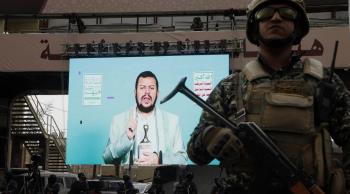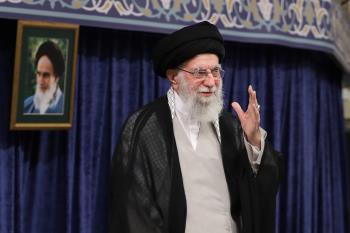Alwaght- United States foreign policy towards the ISIS crisis relies on the governments' campaigns against the crisis and their own leaderships. At first, Turkey declined to cooperate with the US-led coalition in the fight against ISIS, and the country primarily relied on the Kurdish non-governmental forces and other anti-ISIS forces. Now that Turkey has joined the so-called coalition against ISIS, we may wonder if the United States would change any of its policies, and what goals the US is going to pursue. The deal could ring the alarm bell for the Kurds who are afraid of repetition of history, i.e. being ignored. The goals of the US are discussed in some key areas.
1. To bring Turkey into the coalition as a regional ally to make maximum preparation against the ISIS and to take advantage of the People's Protection Units in the fight against ISIS
At the initial stages of anti-ISIS coalition, the United States called for maximum support and cooperation of its allies against the ISIS, but Turkey's refusal initially disappointed the US. Turkey declined to let the US-led coalition forces use the strategically important Incirlik Air Base. Accordingly, the coalition attacks were not effective enough and the air strikes lacked the required promptitude. From the day the coalition was organized, the US officials made attempts to persuade the Turkish politicians to join the coalition, eventually their efforts proved fruitful. Now that Turkey has given the green light to collaboration with the US-led coalition, one of the most important goals of the US is to gain the consent of the Turks and keep them in the coalition so that the US can give more legitimacy to attacks against the ISIS.
While the United States appreciates the presence of Turkey in the coalition, it also has realized the importance of the Kurdish troops in fighting against the ISIS in Syria. To the extent that Ashton Carter, the US Secretary of Defense, said earlier that the People's Protection Units (YPG) is what the US needs. Further, a former advisor to the State Department of America, Terry J. Barkey has claimed that YPG forces play the role of the US ground forces, and fighters of the coalition play the role of the US Air Force. The United States cannot ignore the significant role of the YPG in the fight against ISIS. State Department Spokesperson John Kirby also announced that the US fighter planes continue to support the YPG forces in combating the ISIS terrorist group, even from Incirlik Air Base. However, the Turkish Foreign Ministry has announced that according to the agreement, the coalition forces may not use Incirlik Air Base to support the YPG, and this has created an ambiguity for the Kurds. Nevertheless, it seems that while the US takes Turkey's demands into account, it is making attempts to persuade Turkey that for the time being, the Kurdish forces can do a great job in the fight against ISIS; therefore, they need to continue to give air support to the YPG forces. Besides, the US wants Turkey to distinguish between YPG and the PKK, and the US has tried to prove the distinction. Mark Toner, deputy spokesperson of the US Department of State, has also stated that these two forces are quite different and are fighting in different regions.
2. To undermine the balance of regional forces
The policy of undermining is a US strategy towards the arrangement of available forces against each other in the Syrian crisis which aims at their attrition and rejecting the claims for power in a post-crisis situation. The US has declined to send ground forces or seriously deal with the ISIS crisis; therefore, all regional powers and forces are drawn into the crisis. To the extent that if the ISIS crisis persists, Syria will be further weakened. The YPG forces which serve as a ground force against ISIS will eventually get exhausted and lose their effectiveness. In this game, Turkey was criticized from the beginning and now continues to play in an obscure way. It is expected that Turkey will face some challenges which will further undermine the country. Turkey's regional power began to be undermined since the early days of Islamic Awakening, and continued with the problems caused by intense activism of Turkey aimed at overthrow of Bashar al-Assad, and this process is expected to continue with turns in foreign policies of Ankara. The other forces involved in the Syrian crisis, due to lack of decisive intervention of the United States in this crisis, will undergo the gradual process of attrition against each other.
3. A warning to the PKK and Bashar al-Assad
Currently, one of the main objectives of the US is to warn Assad and to draw Turkey's support. Accordingly, in current situation the US prefers to keep Bashar al-Assad, though in a small area. However, in the long term the US is not likely to agree with Bashar al-Assad's remaining in office. As to the PKK, although it has fought against the ISIS terrorist group and even has improved its regional and international reputation, the PKK has been blacklisted by the US as a terrorist organization. To the extent that the PKK is confronted with the highest allegations in conflicts between Turkey and Kurdistan Workers' Party. Mark Toner reiterated that the US has called for stopping the attacks against Turkey, adding that we asked the PKK to resume reconciliation talks. To date, despite attacks launched by Turkey against the PKK positions, the United States has declined to react to the move.


























